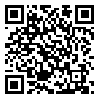BibTeX | RIS | EndNote | Medlars | ProCite | Reference Manager | RefWorks
Send citation to:
URL: http://jpcp.uswr.ac.ir/article-1-306-en.html
2- Department of Clinical Psychology, Faculty of Human Sciences, Qom Islamic Azad University, Qom Branch, Qom, Iran. , mirzahoseini.hasan@yahoo.com
3- Department of Clinical Psychology, Faculty of Human Sciences, Qom Islamic Azad University, Qom Branch, Qom, Iran.
Objective: Educating families and caregivers of schizophrenic patients on controlling and managing the disorder, has found particular importance in clinical psychology. The present study aims to examine the effect of Psychoeducational interventions on illness management in families of schizophrenic patients.
Methods: The present study is a quasi-experimental research with pretest-posttest design, and two control groups. The study sample consisted of 30 families with a schizophrenic member. The families were selected from referrals to a psychiatric center in Tehran (during a period of 40 days) who met the inclusion criteria, and were randomly placed into three groups: an experimental group, a control group with placebo, and a control group without placebo (10 persons in each group). A researcher-made questionnaire was used to collect data. The experimental group received trainings (a training package) and attended a group discussion on schizophrenia. The placebo group attended similar meetings, but without educational content and group discussion, and the second control group were only assessed in the pretest and posttest. After finishing the training sessions, and following an interval of 3 months, the posttest was conducted for each group. The study data were analyzed using univariate analysis of variance (ANOVA). All statistics were carried out using SPSS software, version 11.
Results: According to the results, the experimental group had significantly higher gain scores (α≤0.05) than the two control groups, on the following variables: an increase in the adaptability of the patient in daily functioning, from the viewpoint of both a clinical psychologist and the patient’s family, an increase in the family’s knowledge of the illness, and a reduction in the
adverse effects of the illness on the family’s feeling and attitude.
Conclusion: The present study showed that family education is effective in increasing patients’ adaptability and patients’ family knowledge, and in reducing the adverse effects of the illness.
Received: 2015/08/16 | Accepted: 2016/01/12 | Published: 2016/04/1
| Rights and permissions | |
 |
This work is licensed under a Creative Commons Attribution-NonCommercial 4.0 International License. |







